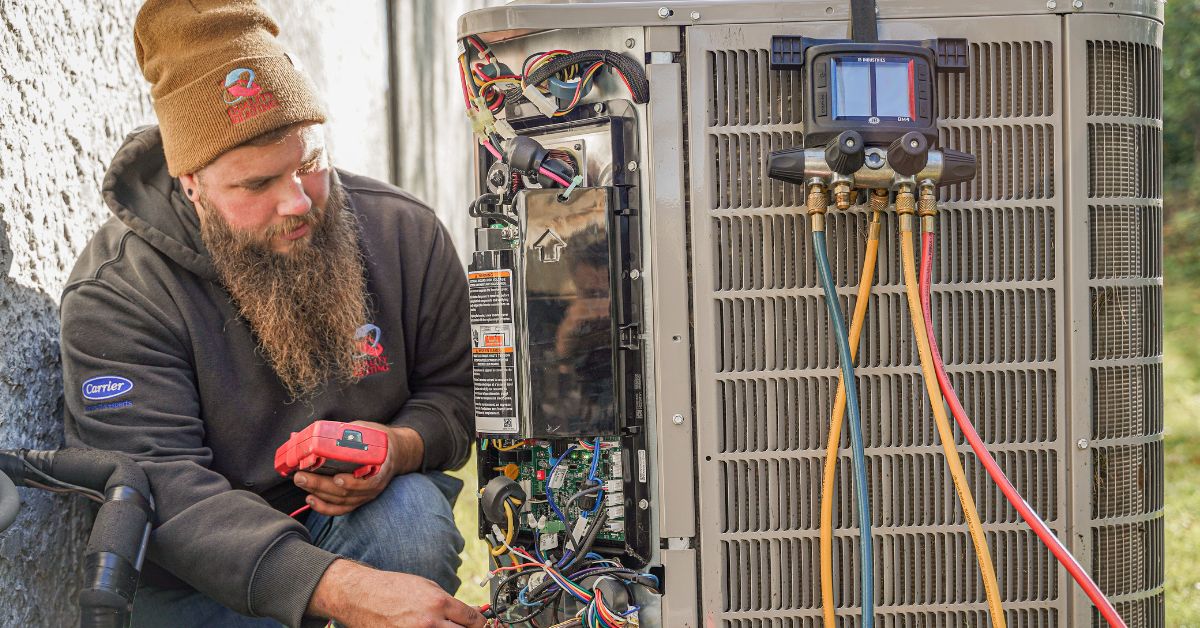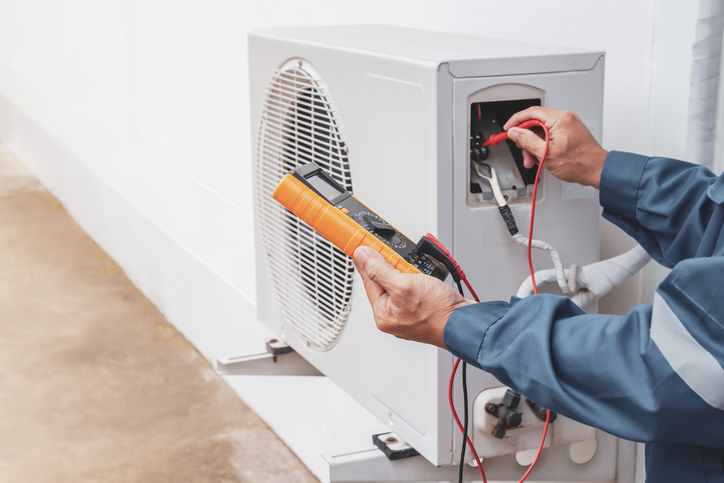The complete checklist to ac unit replacement for homeowners
Wiki Article
Recognizing A/c: Typical Troubles of AC Systems and Their Solutions
Cooling and heating systems play a crucial function in keeping indoor convenience. Nonetheless, air conditioning systems frequently come across typical issues that can impede their efficiency. Concerns like poor cooling, unusual sounds, and frequent cycling can show much deeper mechanical issues. Furthermore, water leakages and unpleasant odors can compromise air quality. Comprehending these obstacles and their solutions is vital for effective upkeep. What actions can homeowners take to ensure their air conditioner systems operate effectively?Inadequate Air Conditioning Efficiency
What causes inadequate air conditioning performance in a HVAC system? Numerous factors can add to this concern. A typical reason is a dirty air filter, which restricts airflow and minimizes cooling down effectiveness. Furthermore, low refrigerant levels as a result of leaks can prevent the system's capacity to take in warm successfully. One more possible problem may emerge from a malfunctioning thermostat, causing inaccurate temperature readings and improper cooling cycles. Obstructed or unclean condenser coils can also prevent heat dissipation, further impacting performance. Ductwork issues, such as leaks or blockages, can result in unequal air conditioning throughout a space. Recognizing these issues immediately is vital for keeping optimal HVAC feature and making sure a comfy indoor environment. Normal maintenance and inspections can assist minimize these problems and boost the system's overall performance.Unusual Noises Coming From the Air Conditioner Device
A variety of uncommon sounds coming from an air conditioning device can show underlying issues that need interest. Usual audios include rattling, which might suggest loosened elements or particles within the unit. Hissing sounds frequently indicate refrigerant leakages, compromising the system's effectiveness. A grinding sound could show damaged bearings or motor problems, while a high-pitched screech could signal a trouble with the compressor or a slipping belt.Each of these sounds functions as an indication that something may be amiss, possibly resulting in even more considerable damages otherwise resolved quickly. House owners need to stay clear of ignoring these auditory signs and think about getting in touch with a qualified a/c specialist for diagnosis and repair service. Timely intervention can not just restore performance but likewise prolong the life expectancy of the system. Fix broken Air conditioner. Identifying these sounds as signs of difficulty is essential for keeping peak a/c performance
Frequent Cycling On and Off
Regular biking on and off can suggest inadequacies or malfunctions within a HVAC system, often described as short-cycling. This condition can lead to boosted power consumption and might create unneeded wear on the device's components. A number of aspects can add to this issue, including an improperly sized cooling device, a malfunctioning thermostat, or dirty air filters. When an air conditioner unit is too huge for the space, it cools down as well quickly, creating it to cycle frequently without effectively dehumidifying the air. If the thermostat is faulty, it might incorrectly signify the device to turn on and off. In addition, obstructed or filthy air filters can restrict air movement, prompting the system to work more challenging and cycle more frequently. Addressing these problems immediately is important to improve performance, extend the life-span of the heating and cooling system, and keep excellent interior convenience.Water Leakages and Drain Issues
Water leaks and drainage problems can present significant obstacles for a/c systems, bring about possible damage and ineffectiveness. These troubles frequently stem from stopped up condensate drains, which prevent water from draining correctly and can cause overflow. Furthermore, harmed drainpipe pans or improper setup may worsen these leakages, causing water to accumulate in undesired locations.
Normal upkeep is necessary to avoid such problems; making certain that condensate lines are clear and drainpipe frying pans are undamaged can mitigate read more the risk of leaks. House owners must consistently check for indications of dampness around the unit, as early detection can prevent more comprehensive damages. In situations where leaks are identified, prompt action is called for, which might consist of clearing obstructions or replacing faulty components. Resolving water leakages and drain issues not just shields the cooling and heating system yet likewise maintains interior air high quality and comfort.
Bad Odors and Air Quality Problems
Bad smells rising from heating and cooling systems can suggest severe air quality concerns. Usual sources of these unpleasant scents consist of mold, mildew, or bacteria development in the ductwork, typically because of moisture buildup. If the system has an unpleasant, musty smell, it may signify that the air filters are clogged or that there wants air flow, allowing contaminants to circulate. Furthermore, a burning odor could suggest electric issues or overheating elements, needing immediate interest.Homeowners should frequently replace air filters and schedule regular upkeep to ensure peak air high quality. Making use of an air purifier can likewise help remove odors and improve interior air quality. If smells continue regardless of these actions, professional evaluation read more and cleaning might be required to determine and resolve underlying problems. Fix broken Air conditioner. Awareness of these smells is important, as they can impact health and convenience in indoor environments

Often Asked Concerns
How Frequently Should I Schedule AC Maintenance?
It is recommended to arrange air conditioner maintenance at the very least yearly, preferably before the air conditioning season starts. Regular examinations can assist determine issues early, making certain effective operation and prolonging the lifespan of the system.
What Is the Typical Life-span of an A/c Device?
The ordinary life-span of an air conditioner unit normally varies from 15 to 20 years. Aspects such as upkeep, use patterns, and environmental conditions can substantially affect this period, affecting general performance and efficiency with time.How Do I Choose the Right Size Air Conditioner System for My Home?

What Are the Indicators My A/c System Needs Substitute?

Can I Mount an Air Conditioning System Myself?
While installing an air conditioning system oneself is feasible, it calls for technological knowledge and appropriate tools. HVAC company. Several people might face challenges with installment, potentially bring about inefficiency or safety hazards, making professional assistance here recommended for suitable outcomesFinal thought
In summary, understanding usual a/c troubles and their solutions is necessary for maintaining effective AC device performance. Addressing concerns such as insufficient air conditioning, uncommon noises, constant cycling, water leakages, and unpleasant smells can significantly enhance interior comfort and air quality. Normal upkeep, including filter adjustments and timely repairs, plays a significant duty in protecting against these issues. By staying positive, homeowners can assure their heating and cooling systems operate properly, inevitably extending the lifespan of their a/c devices.Report this wiki page